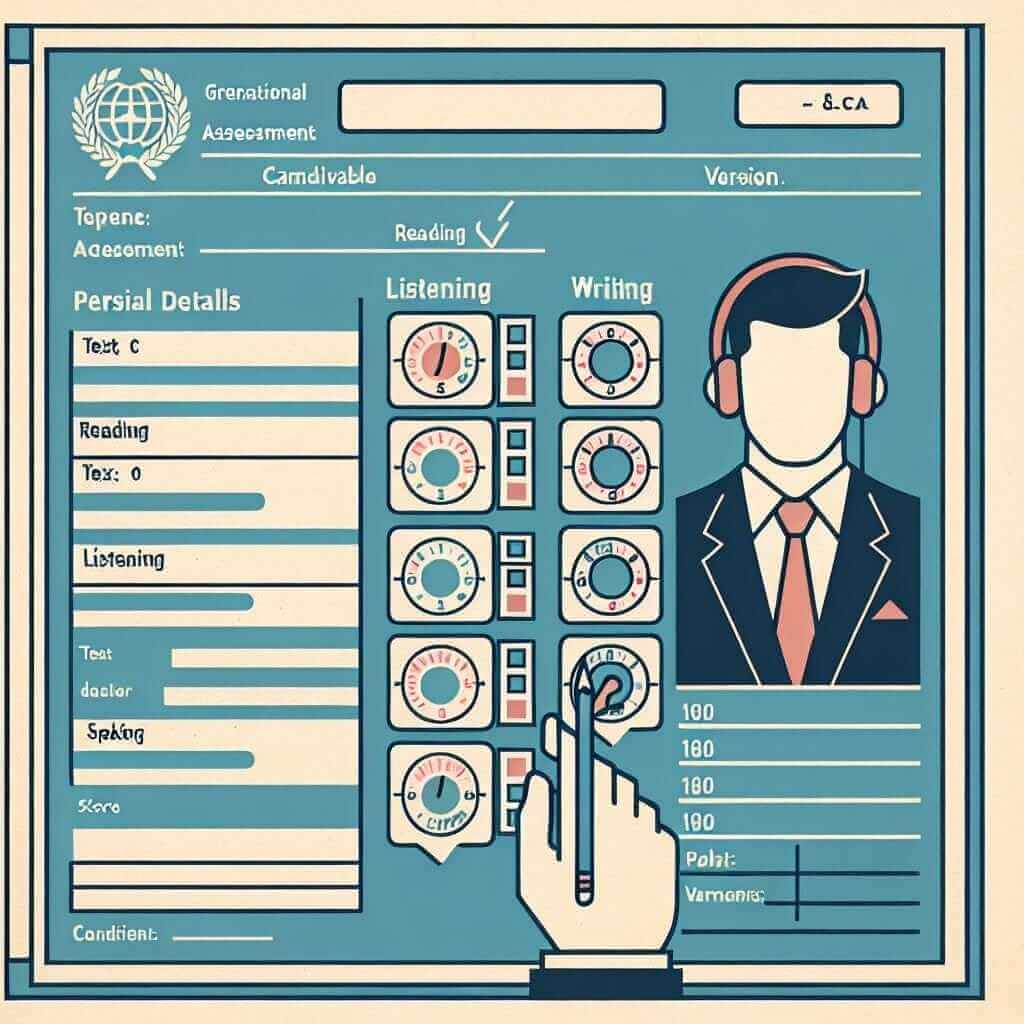As an IELTS instructor with over two decades of experience, I’ve encountered countless students eager to conquer the IELTS exam. A common thread among them is a desire to understand the intricate details of this internationally recognized English proficiency test. One question I hear frequently is, “What is an IELTS TRF?” Today, we’ll demystify the IELTS Test Report Form (TRF), explaining its importance and how to interpret your scores.
Decoding the IELTS TRF
Your TRF is more than just a piece of paper; it’s a comprehensive record of your IELTS performance. It provides a detailed overview of your scores across all four sections: Listening, Reading, Writing, and Speaking. Importantly, it also presents an overall band score, reflecting your overall English language proficiency.
 ielts test report form
ielts test report form
What Information Does an IELTS TRF Contain?
Your IELTS TRF is a treasure trove of information about your English language abilities. Here’s what you can expect to find:
1. Personal Details:
- Your full name
- Test date
- Candidate number
- Date of birth
- Nationality
- First language
2. Test Type:
- Clearly indicates whether you took IELTS Academic or IELTS General Training. This is crucial, as the test type should align with your specific purpose, whether it’s university admission or migration.
3. Band Scores:
- Each section (Listening, Reading, Writing, and Speaking) receives an individual band score, ranging from 0 to 9. These scores are reported in half-band increments (e.g., 6.5, 7.0, 7.5).
- The TRF also displays an overall band score, calculated as the average of the four individual section scores.
4. CEFR Level:
- Your TRF aligns your scores with the Common European Framework of Reference for Languages (CEFR), a widely recognized international standard for describing language ability.
Why is the IELTS TRF Crucial?
Your IELTS TRF is your passport to various opportunities:
- University Admissions: Many universities worldwide, particularly in English-speaking countries, require a specific IELTS score for admission into their programs.
- Immigration Purposes: Governments in countries like Canada, Australia, and New Zealand often use IELTS scores to assess the English language proficiency of prospective immigrants.
- Professional Registration: Certain professions require individuals to demonstrate their English language competency, and the IELTS TRF serves as valid proof.
- Visa Applications: Many types of visas, such as student visas and work visas, require applicants to provide proof of English language proficiency, often through IELTS scores.
Tips to Maximize Your IELTS Score:
- Practice Regularly: Consistent practice is key to familiarizing yourself with the test format and improving your language skills.
- Utilize Official Resources: Leverage official IELTS preparation materials, such as practice tests and sample answers, to gain valuable insights.
- Seek Expert Guidance: Consider enrolling in an IELTS preparation course or working with a qualified tutor to receive personalized feedback and strategies.
- Focus on All Skills: Allocate sufficient time to practice all four sections of the IELTS exam to ensure balanced development.
In Conclusion:
The IELTS TRF is a testament to your hard work and English language proficiency. Understanding its contents and significance is vital for achieving your academic, professional, or personal goals. Remember, dedicated preparation and a strategic approach can significantly enhance your chances of achieving your desired IELTS score. Good luck!


